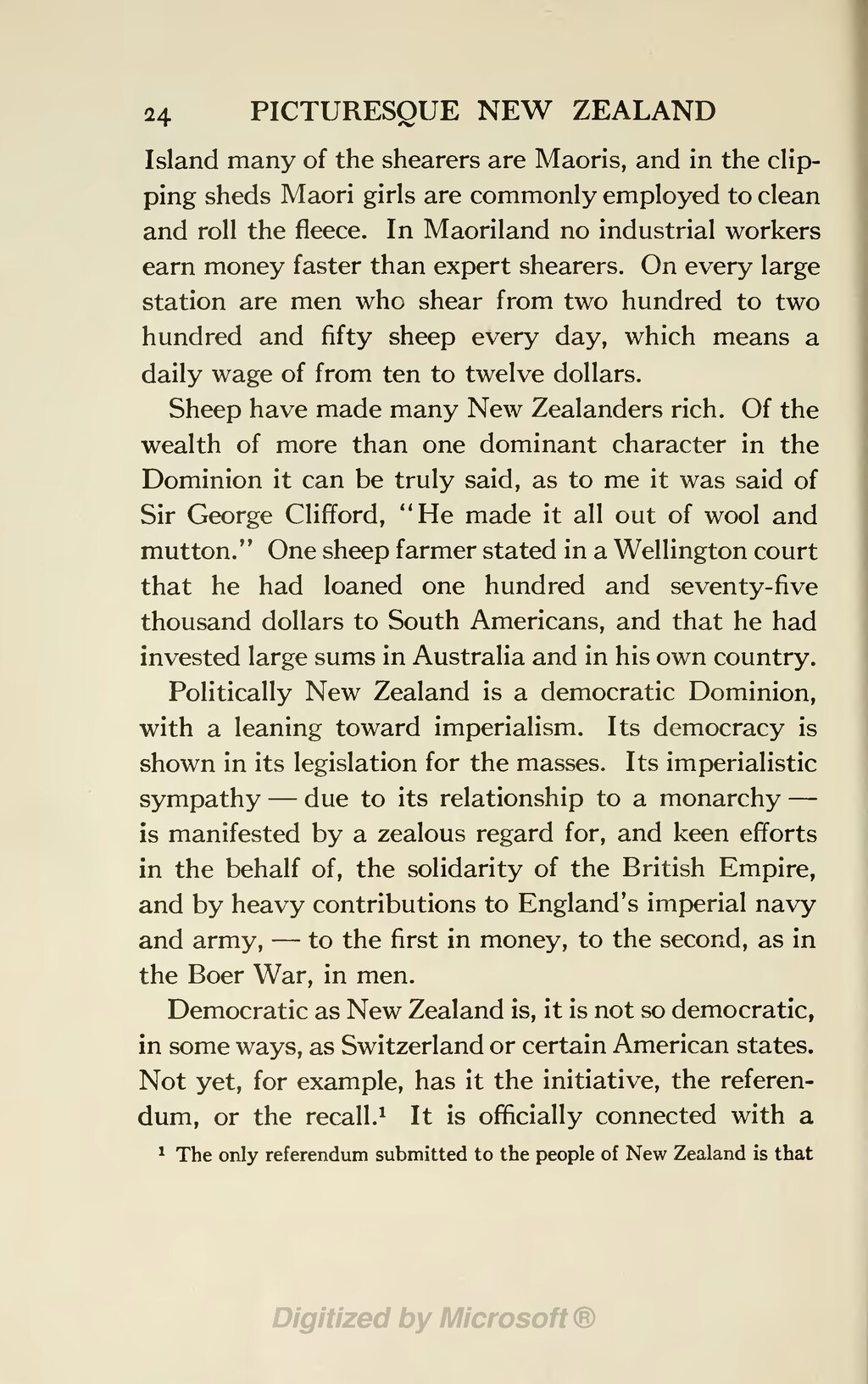Island many of the shearers are Maoris, and in the clipping sheds Maori girls are commonly employed to clean and roll the fleece. In Maoriland no industrial workers earn money faster than expert shearers. On every large station are men who shear from two hundred to two hundred and fifty sheep every day, which means a daily wage of from ten to twelve dollars.
Sheep have made many New Zealanders rich. Of the wealth of more than one dominant character in the Dominion it can be truly said, as to me it was said of Sir George Clifford, "He made it all out of wool and mutton." One sheep farmer stated in a Wellington court that he had loaned one hundred and seventy-five thousand dollars to South Americans, and that he had invested large sums in Australia and in his own country.
Politically New Zealand is a democratic Dominion, with a leaning toward imperialism. Its democracy is shown in its legislation for the masses. Its imperialistic sympathy—due to its relationship to a monarchy—is manifested by a zealous regard for, and keen efforts in the behalf of, the solidarity of the British Empire, and by heavy contributions to England's imperial navy and army,—to the first in money, to the second, as in the Boer War, in men.
Democratic as New Zealand is, it is not so democratic, in some ways, as Switzerland or certain American states. Not yet, for example, has it the initiative, the referendum, or the recall.[1] It is officially connected with a
- ↑ The only referendum submitted to the people of New Zealand is that concerning the abolition of the public sale of liquor, occurring once every three years, simultaneously with the election of members to the House of Representatives. The people have no power to recall either a State or a local body official, but the Auditor-General may be recalled by the House of Representatives.
